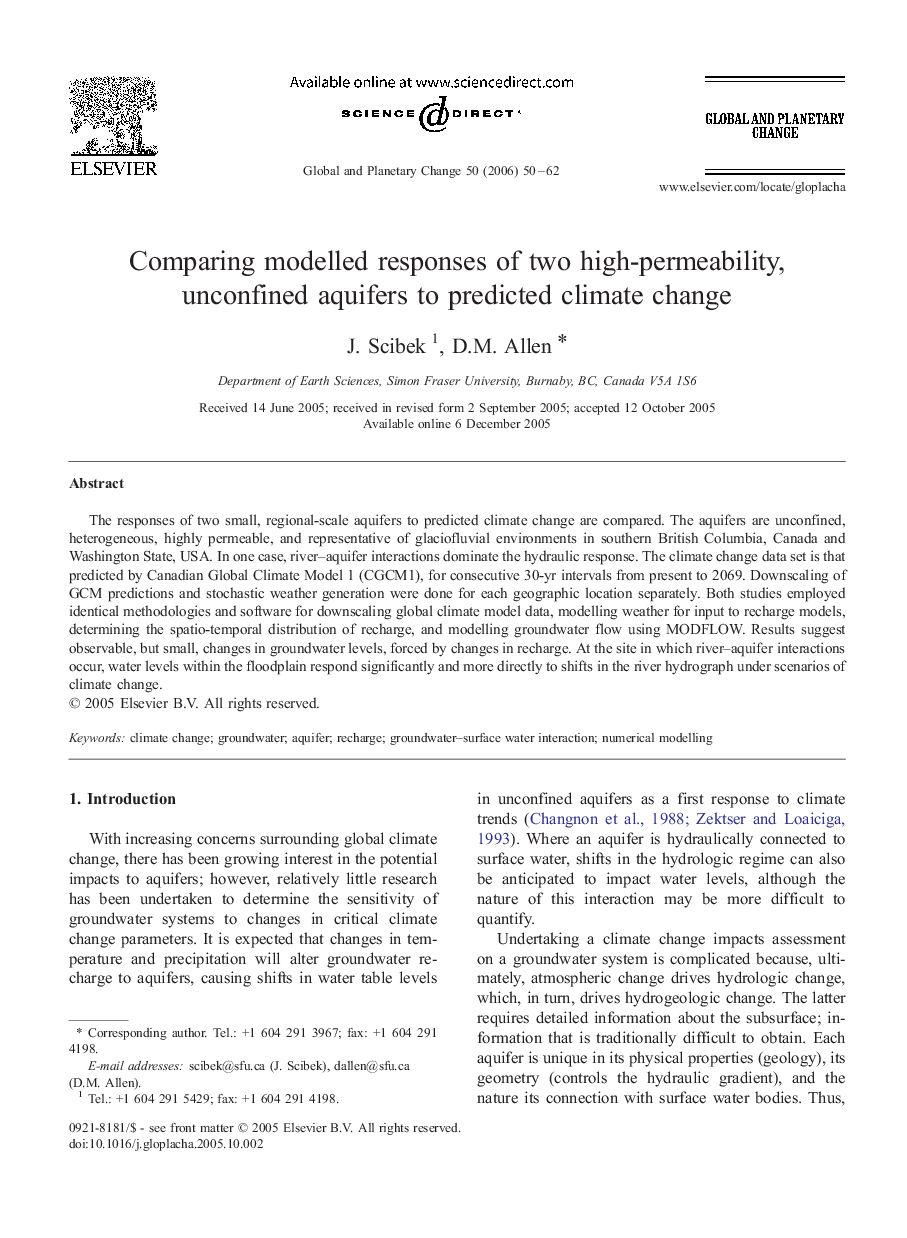| Article ID | Journal | Published Year | Pages | File Type |
|---|---|---|---|---|
| 4464568 | Global and Planetary Change | 2006 | 13 Pages |
The responses of two small, regional-scale aquifers to predicted climate change are compared. The aquifers are unconfined, heterogeneous, highly permeable, and representative of glaciofluvial environments in southern British Columbia, Canada and Washington State, USA. In one case, river–aquifer interactions dominate the hydraulic response. The climate change data set is that predicted by Canadian Global Climate Model 1 (CGCM1), for consecutive 30-yr intervals from present to 2069. Downscaling of GCM predictions and stochastic weather generation were done for each geographic location separately. Both studies employed identical methodologies and software for downscaling global climate model data, modelling weather for input to recharge models, determining the spatio-temporal distribution of recharge, and modelling groundwater flow using MODFLOW. Results suggest observable, but small, changes in groundwater levels, forced by changes in recharge. At the site in which river–aquifer interactions occur, water levels within the floodplain respond significantly and more directly to shifts in the river hydrograph under scenarios of climate change.
